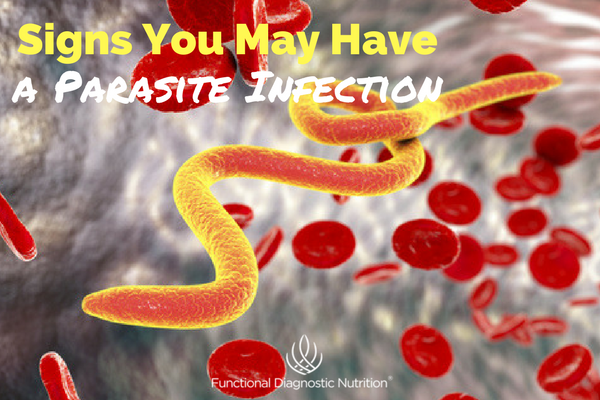When talking about parasites, many people think about the connection between their pets and these invasive creatures. And although it is common for the family pet to be treated for a parasite infection throughout their lives, it is equally as common for humans to be infected.
What are parasites?
A parasite is a type of organism that lives either in or on another host organism and gets its nutrition at the expense of the host. Parasites rob both animals and humans of vital nutrition and can cause nutrient deficiencies and malnutrition.
There are many types of parasites; but the most common are tapeworms, hookworms, roundworms, pinworms, Giardia and blood flukes.
Tapeworms
The tapeworm is a type of flatworm. This type of parasite is usually found in the intestines of infected animals, can grow to be 50 feet long and can live for up to 20 years. Humans are normally infected by consuming undercooked meat from and infected animal.
Hookworms
Young worms have teeth which they use to burrow into your intestinal wall. Once they’ve attached themselves, they feed on your blood. Infections occur when a person has contact with contaminated soil.
Roundworms
Roundworms can grow to be up to 15 feet long. Although anyone can get roundworms, they are more likely to be found in underdeveloped areas of the world where hygiene is poor. Roundworms can be found in the soil and in feces and can enter the body through the mouth or through contact with the skin.
Pinworms
These narrow, tiny worms only grow to about half an inch long. Infections are very common and are highly contagious. A human can be infected by ingesting or inhaling pinworm eggs.
Giardia
Giardia infections are becoming more widespread. This single cell parasite typically infects humans who are exposed through drinking infected water. This parasite cannot be killed by chlorine and is being found more often in swimming pools, rivers, streams and ponds.
Blood flukes
This type of parasite spends the first part of its life maturing in snails. After that, they will find a human host to occupy, burrowing through the skin and living in the veins where they feed off of blood.
For many people who are infected, they can go a lifetime hosting a parasite and never show signs. But others struggle with multiple symptoms and may spend their lives going from doctor to doctor trying to discover why they aren’t feeling well.
Some of the most common symptoms of a parasite infection include:
Digestive issues
- Abdominal pain
- Diarrhea
- Gas
- Bloating
Sleep problems
- Waking up multiple times at night
- Problems falling asleep
Skin problems
- Rashes
- Hives
- Ulcers
- Acne
- Lesions
- Eczema
Mood disorders
- Depression
- Anxiety
- Irritability
- Suicidal thoughts
Chronic fatigue
- Exhaustion
- Fatigue that doesn’t go away after a good night’s sleep
- Feeling of apathy
Pain throughout body
- Soreness
- Stiffness
Anemia or iron deficiency
Candida and other reoccurring yeast infections
Food sensitivities
Itching
- Mouth
- Nose
- Anus
Factors that increase risk of parasite infection
History of traveling abroad
History of food poisoning
Handle raw or undercooked meat
Swim in lakes, streams, rivers, ponds, swimming pools
Have pets
Parasites are very common and most people have one or more types of them residing in their body. If you are concerned that you may be infected, there is a simple test that can confirm an infection along with the type of infection present. A qualified FDN practitioner can help you with the proper testing and can interpret your results and create a protocol that can help you to feel better soon!
If you would like to learn more about becoming a health detective, and using tools like functional lab testing with your clients, then check out our certification course!







